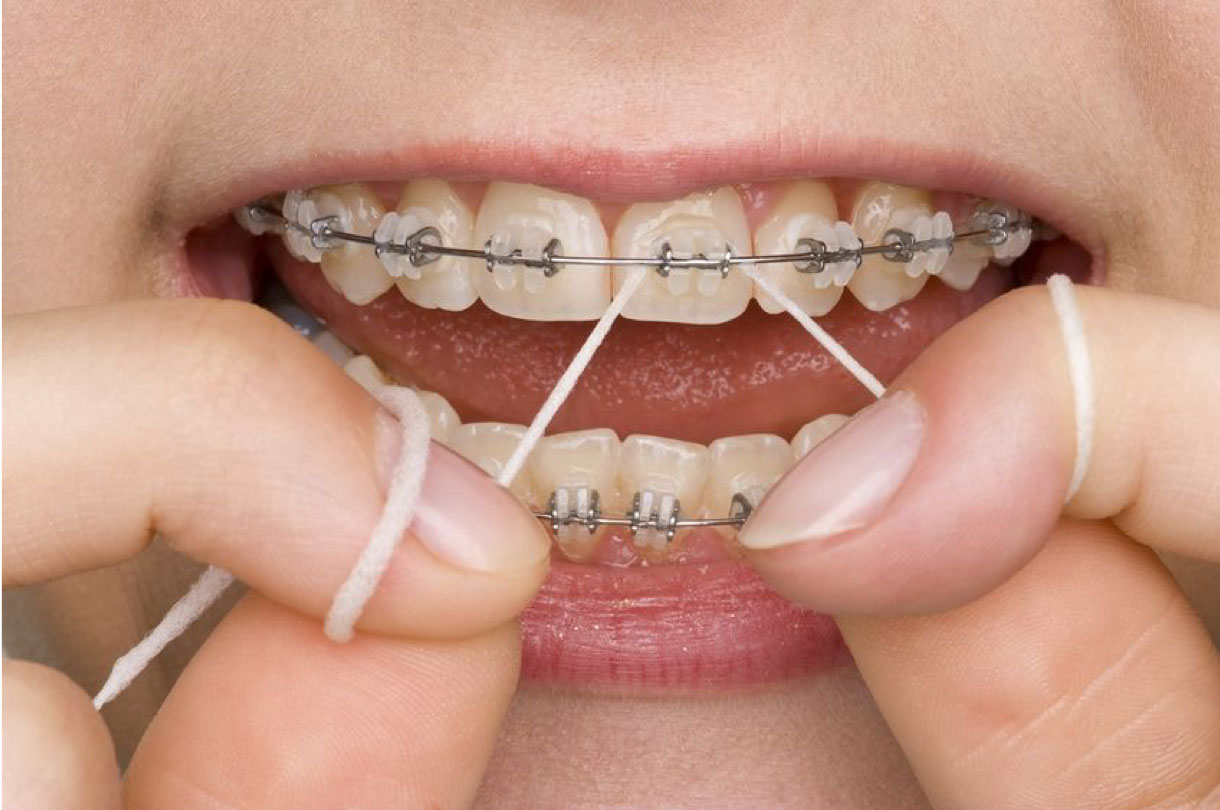
Orthodontics are often used to rectify malocclusion of teeth or a bad bite. Over 4.5 million Americans are wearing braces – but once the braces are on, many people neglect proper oral hygiene, exacerbating their already poor oral health.
With braces on, it’s crucial to eat a healthy balanced diet and incorporate cleaning processes like water flossing.
What is water flossing?
This is the practice of washing around and between the teeth with plain water, typically done using a device known as a water flosser. Water flossers steadily jut sprays of water between and around the teeth effectively cleaning and removing plaque and food particles.
These devices also help prevent gingivitis.
Traditional flossing utilizes a piece of thread or string that one passes between and around the teeth to loosen and remove food particles and plaque. Both traditional and water flossing are crucial for oral hygiene.
Water flossing is the best alternative to traditional flossing for people who find the latter tedious.

Importance of flossing
For most people who brush their teeth twice a day the concept the flossing can seem like beating a dead horse. But is it? For many, the practice of picking our teeth using sharp items looks not only unsafe and unhygienic – it downright appears like a lack of manners!
However, oral health professionals recommend tooth brushing twice a day and flossing should go hand in hand. While brushing is a fairly straightforward affair, flossing needs dexterity of the hands to achieve effective results.
People who floss are 80% more likely to avoid gum disease and tooth decay.
How to clean teeth with braces on
Braces create a unique challenge for the wearer when it comes to cleaning around and between the teeth. The braces trap more food and there are more nooks and crannies for particles to hide in. The following solutions can help:
1. Use a water flosser
The trend of water flossing has been gaining momentum among brace wearers and with good reason. Using products like the ToothShower, one is able to give their braces a thorough clean every-time they’re in the shower.
The ToothShower attaches to the shower head so flossing becomes something the user can do every time they shower. It guarantees that the user will get rid of 99.9% bacteria in between the teeth for a thorough clean.
You can also use the irrigating gum massager at the same time to clean the gums as well. Poorly cleaned gums can result in puffiness, inflammation and bleeding – just as a start!
2. Go for regular dental check ups
To keep braces effective and healthy, it’s crucial to see the orthodontist regularly for adjustments and progress checkups. During this time the orthodontist can assess the braces, advise about areas one can improve on hygienically, wash the mouth and teeth thoroughly and repair or adjust the braces.
Oh – and they’ll probably remind you to use a fluoride mouthwash to reach the hidden areas where plaque buildup might occur.
How does water flossing work
- Insert the tip of the water flosser into the reservoir, fill it with warm water and place the reservoir onto the device.
- Plug the device and adjust to low pressure to begin with.
- Place the tip in the mouth and close the mouth before switching it on.
- Lean over the sink and pause at each tooth to allow the water to flow through the teeth
These general instructions apply to most models of water flossers. However, with the ToothShower, since the device attaches to the shower, there’s never any need to refill it.
Frequently asked questions about water flossing
1. Is it safe for kids with braces?
The rule of thumb when it comes to cleaning the braces of a child is to be extra careful and thorough. This is because a child with braces is at a higher risk of tooth decay. Using water flossing is safe under the correct supervision. Plus, the water can reach the hard to find areas effectively.
2. Is water flossing better than traditional flossing?
Water flossing is gentler and easier to use – you don’t have to train their hand to hold the flossing thread properly.
3. Do I need to water floss every day?
Yes, flossing should be an everyday affair considering the fast buildup of germs and bacteria in the mouth. If you prefer this type of flossing, making it part of your daily routine is imperative for good oral health.
Water flossing is an excellent alternative to traditional flossing and complements daily brushing. Although less portable than a traditional flossing thread, water flossers like the ToothShower are convenient for users and can dramatically improve your overall oral health.
The post Water Flossing and Orthodontics appeared first on ToothShower.


Leave a comment (all fields required)